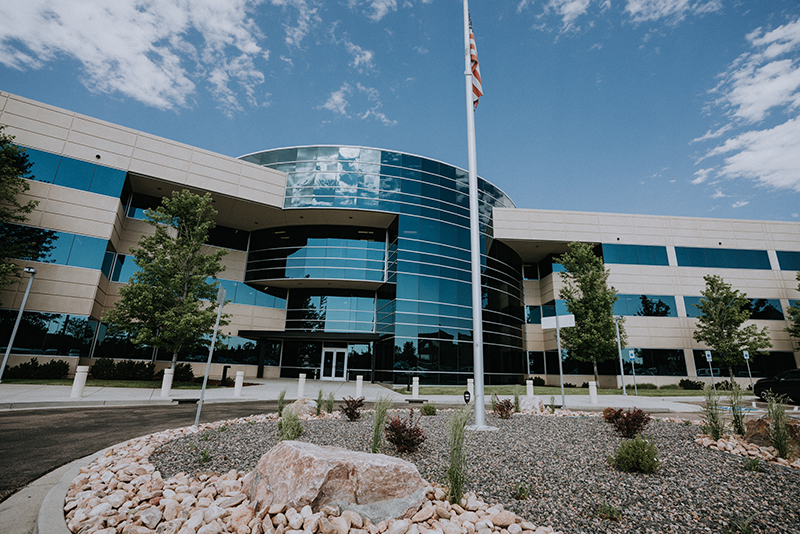Press Release
Johns Hopkins APL Opens Field Office in Bustling Aerospace Hub
Located in the state with the nation’s second-largest aerospace industry, the Johns Hopkins Applied Physics Laboratory’s (APL) newest field office in Colorado Springs, Colorado, opened its doors this summer.
The office lies near Schriever Air Force Base and Peterson Air Force Base and is co-located with Massachusetts Institute of Technology Lincoln Laboratory, Northrop Grumman, ExoAnalytic Solutions, MITRE Corporation and the Missile Defense Agency (MDA), among other government, industry and academic organizations. Additionally, proximity to the U.S. Air Force Academy will facilitate outreach efforts to cadets, to whom the Laboratory will introduce opportunities and resources related to training, education and internships.
The new space, which is able to host collaborative, unclassified meetings and comprises a 130-person conference room equipped with video teleconferencing capabilities, serves as a home base for APL staff members located in Colorado Springs and enhances the Laboratory’s ability to meet sponsor needs.
APL staff members at the field office will play a critical role in connecting U.S. Space Force commands with the technical expertise rooted at the Laboratory’s main campus in Laurel, Maryland. APL will serve the Space Operations Command (SpOC) and Space Training and Readiness Command (STARCOM).
SpOC, formally stood up in October 2020 as the Space Force’s first field command, oversees the operations of the nation’s military satellites, and APL will help SpOC operate its systems effectively and efficiently. The Laboratory, through its National Security Space Mission Area, will also assist STARCOM with test and evaluation as the command trains and prepares cadets from the Air Force Academy to become Space Force guardians.
“That could mean helping the Space Force integrate trusted autonomy into its current weapon systems or implement innovative tactics, techniques and procedures into future operational plans. It could also mean conceiving brand new ways to train its guardians, or test and evaluate its future weapon systems,” said Dennis Woodfork, a program manager in the Space Exploration Sector and one of 10 staff members in the new office. “As APL has done experiments on ships with sailors, I foresee us working with guardians in their operations centers doing the same thing: making critical contributions to critical challenges. All the lessons we’ve learned throughout APL’s history to help the other services, we’re going to apply to the U.S. Space Force.”
With SpOC and STARCOM both headquartered in Colorado Springs, APL staff members at the newest field office can directly interface with stakeholders and maintain a stable presence in a bustling aerospace hub, an invaluable asset as sponsors recognize space as the newest warfighting domain and continue conversations across fields.
“We’re going to combine the space systems acumen of our National Security Space Mission Area with APL’s heritage in missile defense and ensuring combat system effectiveness,” explained Woodfork. “That makes APL uniquely qualified to help with a lot of the sponsors out here.”
